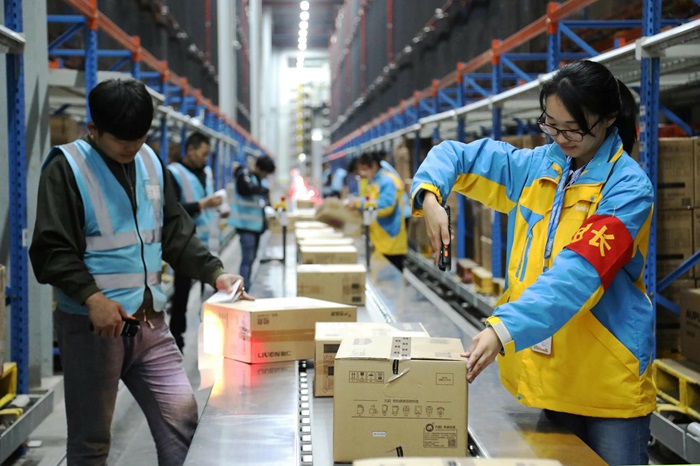E-commerce is rising fast in Central Asia and this has created additional space for China.
According to the People’s Daily of China, approximately nine million parcels are exchanged between China and countries around the world daily, making it easier and faster for consumers to “buy globally.”
Over the past five years, the scale of China’s cross-border e-commerce trade has grown more than tenfold. In the first half of 2024, the country’s cross-border e-commerce imports and exports reached 1.22 trillion yuan ($170.47 billion), up 10.5 percent year-on-year, outpacing the overall national foreign trade growth by 4.4 percentage points.
Marketing and the opening of new customer channels has been enough for some companies to see huge cross-border e-commerce growth, argues the People’s Daily.
Yang Peiqin, an executive of Baoding Xinhai Plastic Sheet Co., Ltd. in Baoding city, north China’s Hebei Province, said the company reported a nearly 20 percent increase in sales for the first half of this year, and the market share of its new polycarbonate tiles stood at nearly 30 percent in Central Asia. Yang attributed the company’s business growth partly to a cross-border e-commerce platform.
From products to promotions and big data analysis, the company launched patent-protected reed boards, customized hexagonal tiles, and various granular boards under the platform’s empowerment, not only achieving sales growth but also enhancing brand awareness.
“Our annual customer base has grown from something countable on one hand to hundreds, achieving an average annual growth of 10 percent,” Yang confidently stated, adding that, this year, the company has developed new products and significantly shortened product delivery times.
“By adjusting sales strategies in a timely manner and continuing to expand into Central Asian and Middle Eastern markets, we expect a small breakthrough in the second half of the year,” Yang said.
In addition to marketing, the second important reason for the wider acceptance of the Chinese goods in Central Asia is logistics.
“Order today, and you can receive Chinese goods the same day”. This has been the shopping experience for many overseas buyers in recent years.
The People’s Daily report, edited by Chang Sha, Liang Jun says that behind the same-day delivery of Chinese goods, the presence of overseas warehouses plays a crucial role. An overseas warehouse allows export companies to send goods in bulk to foreign warehouses for local sales and distribution, which is a significant guarantee for the speed of cross-border e-commerce.
Innovation is also at play.
An increasing number of Chinese companies are making significant strides in international markets with technological innovation, says the People’s Daily.
“Another new order has arrived! This is a rare second concentrated purchase order in a month from the German retailer MediaMark,” said Hou Lu, general manager of Hisense Germany. The recently concluded UEFA European Championship not only ignited the passion of football fans worldwide but also boosted the overseas sales of large-screen TVs.
“In the first half of this year, Hisense TV’s global shipment share continued to rise, with a cumulative market share of 12.9 percent in the German market,” Hou said.
Excitedly, he explained that by relying on iterative innovations in display technology, Hisense became the official partner for VAR (Video Assistant Referee) displays for this year’s UEFA European Championship, assisting referees in making more accurate decisions. “This is not only recognition of our technology but also a demonstration of our brand’s power on the global sporting stage.”
In the Chinese automaker Neta’s factory in Tongxiang, Zhejiang Province, intelligent manufacturing equipment is running at full capacity. Stamping, painting, welding, assembly…dozens of processes are closely coordinated, with robots handling automatic production, covering core technologies and component systems such as electric drives, range extenders, thermal controls, intelligent domain controllers, central supercomputers, and more.
The innovative production process has paid off, with Neta having exported 17,687 new energy vehicles in the first six months of 2024, surpassing last year’s total exports and surging 154 percent year-on-year, according to Zhang Yong, CEO of the company.
A recent survey conducted by China’s Ministry of Commerce indicates that nearly 80 percent of cross-border e-commerce enterprises are optimistic about growth momentum in the second half of this year, said Li Xingqian, director general of the ministry’s department of foreign trade at a press conference held on Aug. 2. /// nCa, 16 August 2024
